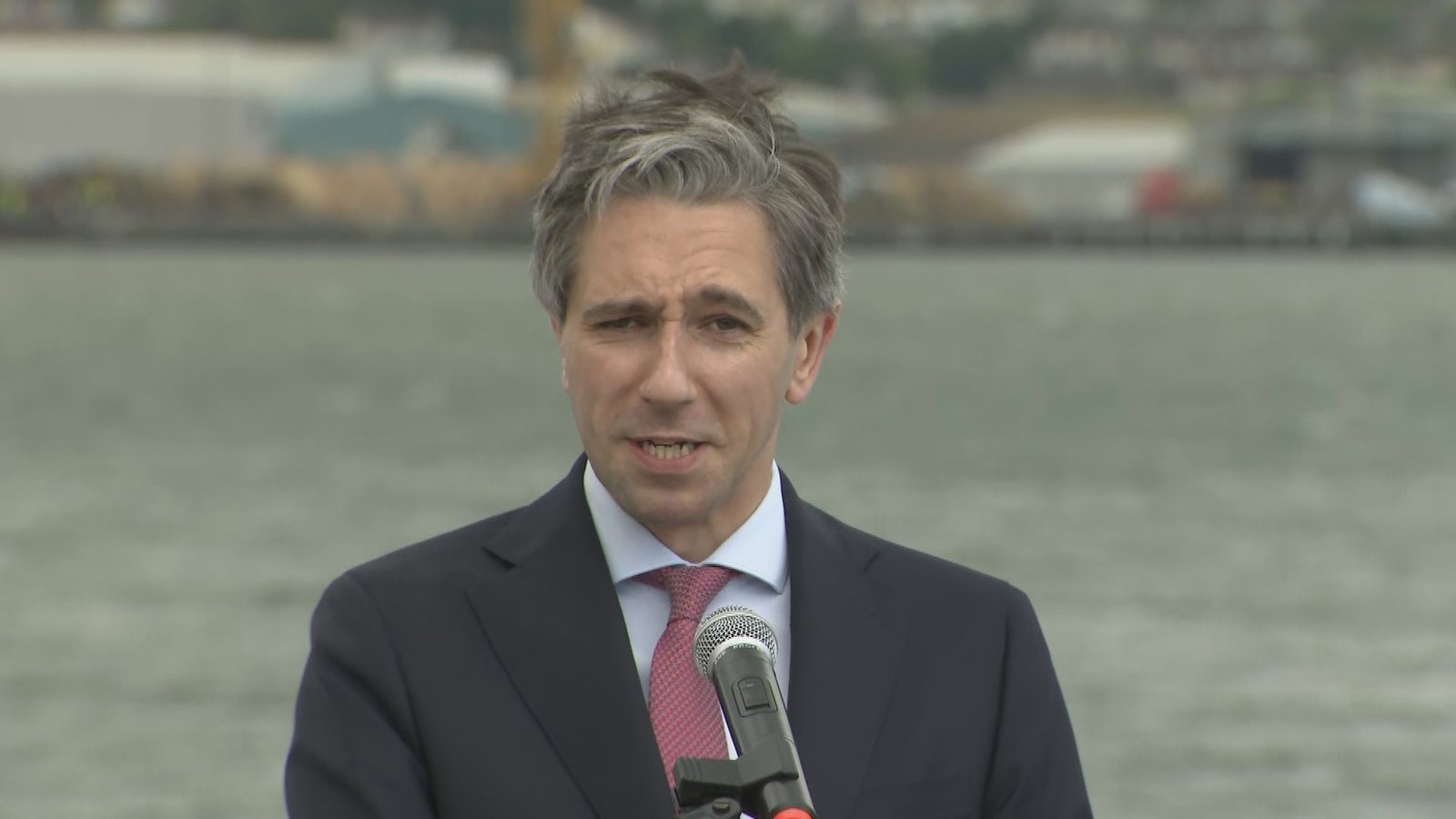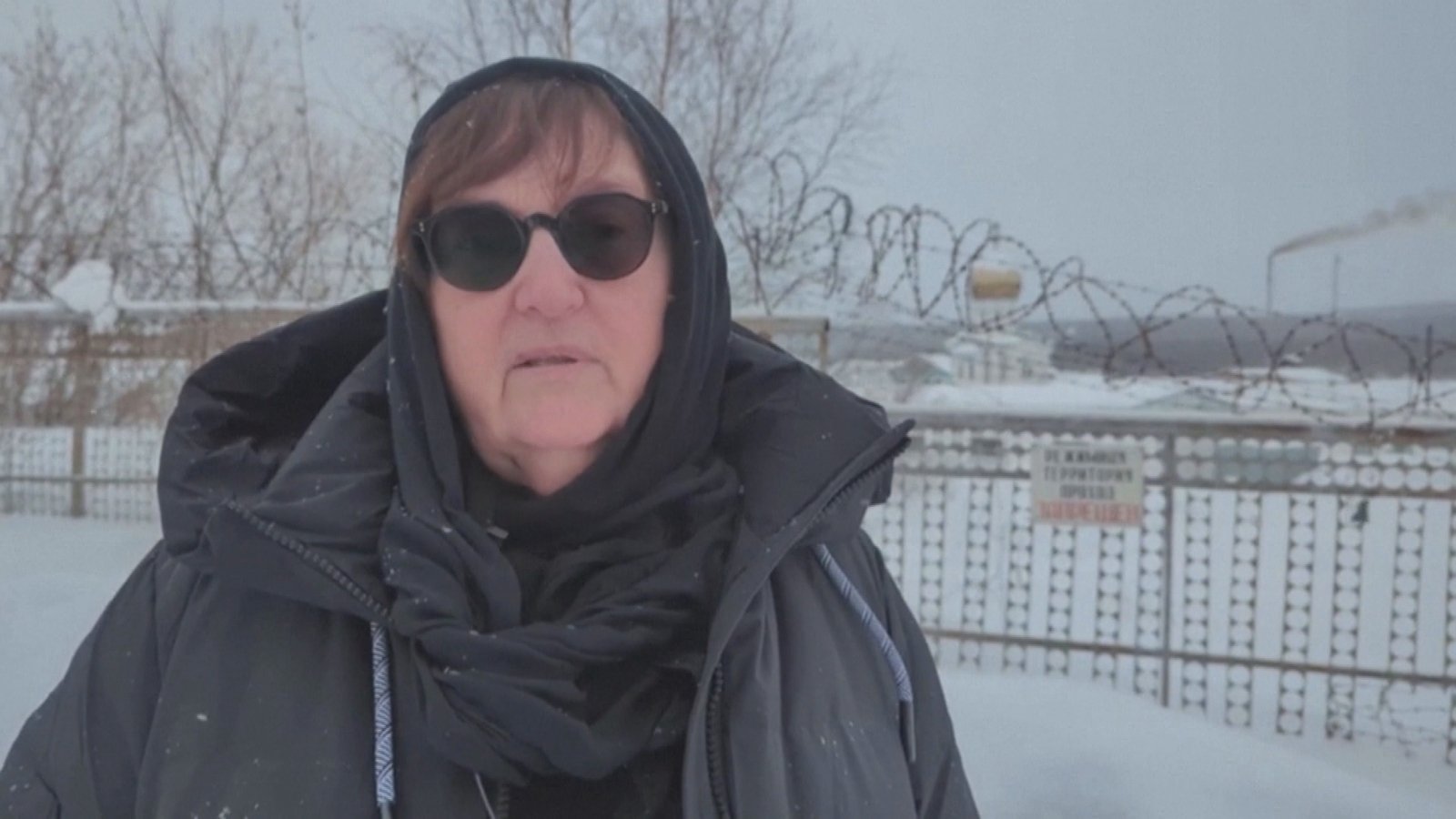Covid inquiry to be held before general election

The Government intends to hold an inquiry into the Covid-19 pandemic before the next general election, Taoiseach Simon Harris has said.
Mr Harris has said the terms of reference will be published within the next few weeks.
His comments came as a new report estimated that Ireland experienced around 1,100 excess deaths during the pandemic years of 2020 and 2021.
The report, from the Society of Actuaries in Ireland, said Government restrictions stand out as one potentially significant factor for lower excess deaths in 2020.
“The Government has made it clear, the three parties in Government and our Programme for Government in terms of a review in relation to the pandemic, I think that’s a sensible thing to do,” Mr Harris said.
We need your consent to load this rte-player contentWe use rte-player to manage extra content that can set cookies on your device and collect data about your activity. Please review their details and accept them to load the content.Manage Preferences
“I very much welcome the fact that today we’re seeing some data being published from the Society of Actuaries that shows the benefits in terms of life saving decisions that were made by the Irish Government, and more importantly by the people of Ireland in terms of their compliance public health advice, but it is the intention of Government to hold a review, and we expect to be in a position to finalise the terms of reference in the coming weeks.”
Tánaiste Micheál Martin said it is important to evaluate how the country did during the pandemic, to inform the response to any future pandemic or another emergency.
He added; “I think we have to learn lessons. We have to have an objective look at how we did but a lot of work has happened over the last number of months. I think it’s a matter of selecting people, someone to head up head such an evaluation and take it from there.”
The move has been welcomed by Social Democrats health spokesperson Róisín Shortall, who said the Taoiseach or Tánaiste had not explained why there has been a delay to setting up such an inquiry.
Speaking on RTÉ’s News at One, she questioned whether the upcoming elections were connected to this.
“It should be up and running by now. We know that in the UK, for example, and in Northern Ireland, that they’re very much ahead of us in terms of the timing of their inquiries,” she said.
She said that last January, the then taoiseach Leo Varadkar had a session where he briefed opposition parties and outlined the scope of the evaluation that they were proposing and provided a certain amount of detail.
We need your consent to load this rte-player contentWe use rte-player to manage extra content that can set cookies on your device and collect data about your activity. Please review their details and accept them to load the content.Manage Preferences
At that stage, the opposition parties were asked to make submissions, with a deadline being the middle of February.
“I would have thought that in a matter of weeks, we would have had a response from Government and a clear outline with details of the panel that are due to carry out this evaluation, and also the person who would be chairing it.
“Unfortunately, we haven’t heard anything about any progress in that area at all.”
She described the inquiry as an after action review, with an expert panel and independent chair dealing with various aspects and the scope of the inquiry, setting out impacts in relation to economic and infrastructure policies, social policy, and social equity.
She said that having a separate module on nursing homes as “a really important thing”.
“If this inquiry is to have credibility, it has to be an honest attempt to look at what happened,” she said.
“What were the things that were done well, and what were the things that weren’t done well, and what lessons can be learned in the case of future threats to the country.”
Report estimates 1,100 excess deaths during pandemic
The analysis from the Society of Actuaries in Ireland reveals broadly no excess mortality in 2020. However, 2021 witnessed an increase in excess mortality, signalling a more significant impact on mortality patterns during the pandemic’s second year.
Excess mortality is defined as the difference between observed deaths and expected deaths.
The authors said that while the report provides a numerical analysis of the deaths experienced in Ireland in 2020/2021, the society is very much cognisant of the people behind these numbers and is mindful of those who suffered the loss of a loved one during the period.
We need your consent to load this rte-player contentWe use rte-player to manage extra content that can set cookies on your device and collect data about your activity. Please review their details and accept them to load the content.Manage Preferences
The current figures show that since the pandemic there have been over 9,300 deaths linked to Covid in Ireland.
The report pointed out that recent research on the impact of Covid-19 on mortality in Ireland has been contradictory and stresses that there is not one definitive approach to calculating excess mortality.
It said this is mainly because, whilst observed deaths will ultimately be a matter of record – they are objective, the calculation of expected deaths is dependent on the choice of methodology and it relies on professional judgement.
The analysis is based on a methodology that relies on past experience as a benchmark for expected deaths.
It added that different past periods for estimating expected deaths result in varying levels of excess mortality.
An actuary and senior lecturer in the School of Mathematical Sciences at University College Cork has said that the Government restrictions during the pandemic may have resulted in fewer deaths from Covid-19.
Linda Daly, who is also a member of the Society of Actuaries in Ireland, said that the research looked at all deaths during the pandemic, not just from Covid, compared to the three years before that period.
“So, while we accept that there was additional deaths from Covid related issues there was lesser [sic] deaths for other issues such as car accidents, respiratory flus and on balance, there was broadly no excess deaths in 2020,” she said on RTÉ’s Morning Ireland.
Ms Daly said that there were 1,100 excess deaths during 2020 and 2021 and they primarily occurred in 2021.
She said that researchers looked into why the deaths happened in 2021 and the Government restrictions were analysed.

Other reports have suggested different figures regarding excess deaths.
In January, the Department of Health cited preliminary results from an OECD Working Paper that suggested Ireland was one of nine OECD countries to avoid excess deaths between 2020-2022.
That study took into account the rise in the population and demographic factors.
An earlier study by the Health Information and Quality Authority published in July 2020 put the number of excess deaths at around 1,200 between March-June of that year, the first year of the pandemic.
That study was based on data from the death notices on the website RIP.ie.
A study published in The Lancet in March 2022 found that Ireland had one of the lowest excess deaths in the world with 1,170 deaths from all causes. It looked at the period 2020-2021.
Additional reporting Fergal Bowers





